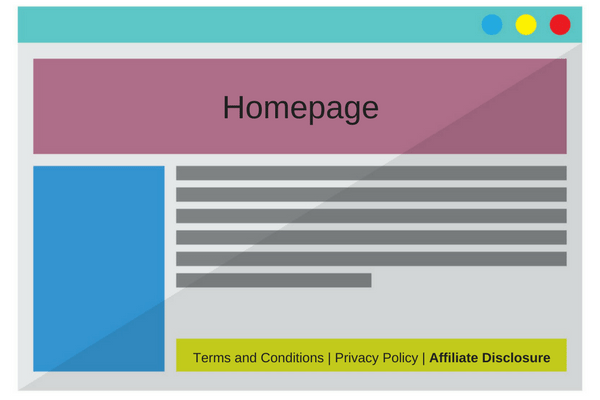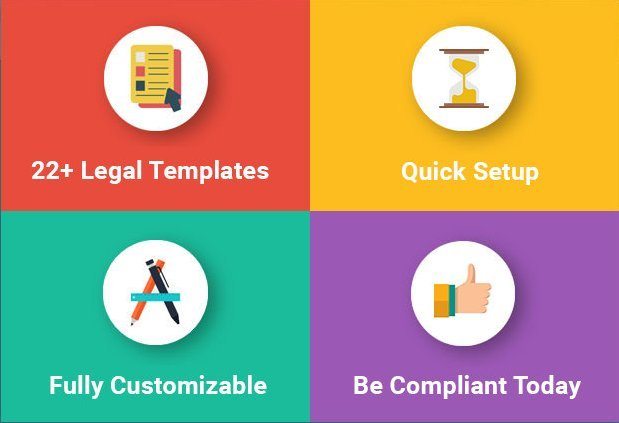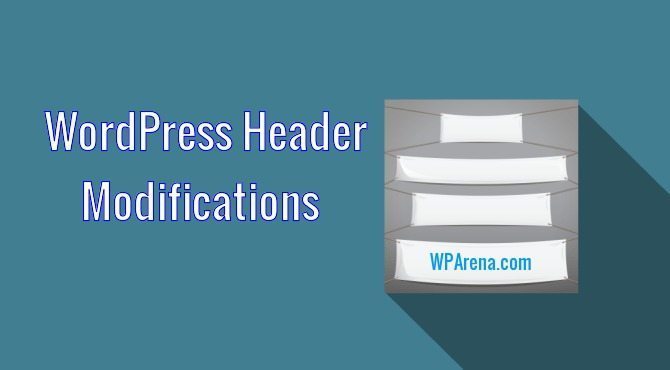Most bloggers having a WordPress website do not set up blogs with the intention of making money. It is usually just an opportunity for you to share some insight or become an authority within a niche.
However, hours of maintenance, writing, and editing quickly build up. You begin to wonder if there is a way for you to cover these costs.
One of the ways in which bloggers can make money is through affiliate marketing. It is a pretty straightforward business to get into. However, if you are a blogger in affiliate business, you must do it within the law.
An affiliate disclosure page is necessary (Checkout WPArena’s Affiliate Disclosure policy page). It would help if you had it placed so that your visitor will indeed look at it.
There are a few facts you need to know about it.
What is Affiliate Disclosure?
You can easily sway visitors with your opinions if you are an authority in your niche. That is why the Federal Trade Commission (FTC) felt it was necessary to maintain trust between consumers and merchants.
An affiliate disclosure is a statement on your legal pages and elsewhere indicating that you are being paid to endorse a product.
Remember a few rules when making an affiliate disclosure on your legal pages.
It Has to Be Frequent
The disclosure must appear on every web page where you are promoting products from other merchants. That means the disclosure must also be there everywhere a merchant’s link appears on a page.
It Must Be Clear
The disclosure must make it clear that you may be compensated for the review or rating of the product. FTC rules do not allow you to imply that you are a neutral reviewer while you are likely to get a commission for the product appearing on your blog. You must state that is the case if you receive a commission for all the products listed on your page. A consumer may assume that the features and prices you present about the product drive their decision and are responsible for the rating.
It Must Be Conspicuous

The FTC states that the disclosure must begin with the word “disclosure’. It must be written in legible letters. Besides that, it must be placed in an area on the page that is easy to see.
It Should Not Require any Action
That means the visitor should not have to hover over the link for the disclosure to be revealed. If a link needs to click, there should be text indicating that it provides the reader with further information on the disclosure.
There Are Legal Consequences
The FTC is quite serious about disclosures. They have prosecuted various cases in court over a failure to disclose. Thus, they may eventually catch up with you and impose some hefty fines. Even large corporations such as Warner Bros have been caught by the FTC flaunting the rules.
Why should your WordPress website have an affiliate disclosure and other legal pages?

While running your affiliate business, if you ever find yourself in a legal issue, your website affiliate disclosure page, disclaimers, and terms will come under scrutiny. You have to be ready from your side. Litigations cost a lot of money and time. It’s best to avoid it. Hence, it would help if you didn’t have a second thought before buying the best WordPress legal pages plugin to protect your website from legal troubles.
How to add an affiliate disclosure page to your WordPress website?
You might find many WordPress legal page plugins in the market. But, choosing the right plugin is very important. WP Legal Pages is one such powerful legal policies generator plugin. You can use it to add an affiliate disclosure page and many other legal pages on your WordPress website.
The legal pages are FTC compliant. In addition, it has a complete range of Legal policies you can add to your WordPress website.

Key Features of WP Legal Pages
Simple and powerful WP Plugin – This plugin can be installed, and legal pages can be added to your WordPress website in less than 5 minutes.
Forced Post/Page Options – You can force your visitors to agree to your Privacy Policy, Terms, etc., using its lockdown features. You can use it on both WordPress pages and posts.
Easy To Edit Pages – The pages you create with its templates are fully functioning WordPress pages, so they appear in your page listings and are easy to edit and make changes to. So you have full TinyMCE and WYSIWYG editor options like any other page.
Extended Menu Options – You can exclude ANY of the Legal Pages created from your custom menus. With these comprehensive options, you can move the legal pages from footer to header and vice-versa quickly.
Pre-built Legal Templates – WP Legal Pages has 24 built-in Lawyer-approved legal page templates to choose from. These templates are created by an internet attorney who tends to be more versed in the internet laws etc.
Custom Shortcode Integration – WP Legal Pages are heavily integrated with shortcodes. You can fill out your business information and custom templates in the form of shortcodes.
Summing up
When starting a business, may that be an affiliate of any other, the one thing that you have to make sure is that you never fall into any legal trouble. Avoiding litigations is more important than earning profits from your business.
Hence, make sure to use the best WordPress affiliate disclosure plugin to provide full transparency about your business to your visitors and, in turn, avoid legal troubles.
You can conduct further research online if you are still unclear about why you need to place a proper disclosure on your site. You can also view the report prepared by the FTC about how to do a proper disclosure.






1 comment
Hi! I enjoyed reading your article and we’ve written a similar article on how to monetizing a blog.I agree that putting disclosure pages will save owners from legal trouble. Bloggers need to incentive’s to keep up with the site costs and surely enough, affiliate marketing is a good way to cover the bills, though visitors may not take it well if they learn that they made money just by visiting a page. Adding the disclaimer will let the audience make informed decisions about the future purchases.
People can put the disclaimer without a plugin though it takes more effort in encoding those on the website codes. Using a plugin will make this easier. A plugin that I recommend is the Affiliate Disclosure PRO plugin, where you can customize the statement and have full control on how it will show up on the website.